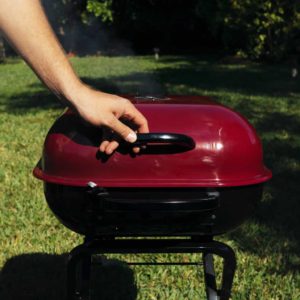 Grilling is a quick, convenient, and delicious way to prepare many foods. However, grilling can also create carcinogenic compounds called HCAs and PAHs, which are formed when proteins and fats in meat interact with high or direct heat.
Grilling is a quick, convenient, and delicious way to prepare many foods. However, grilling can also create carcinogenic compounds called HCAs and PAHs, which are formed when proteins and fats in meat interact with high or direct heat.
Fortunately, it’s fairly easy to avoid these risks with a few simple steps.
- Select leaner meats.
Because less fat drips on the grill, leaner cuts of meat are less likely to produce PAH-laden smoke. - Marinate before grilling.
Marinating meat before you cook it, even for just a few minutes, can reduce HCA formation by 90% or more. Dry spice rubs also inhibit the formation of HCAs. - Grill at lower temperatures. Turn the gas grill down a bit or build a smaller charcoal pile. Cooking your meat at slightly lower temps can greatly reduce HCA formation.
- Prevent flare-ups.
Flames from grill flare-ups cause the formation of both HCAs and PAHs. Keep an eye on your grill and turn meats frequently to minimize the chance of flare-ups. If you do have a flare up, move meat off the grill or to a cooler part of the grill and use a water sprayer to extinguish the flames. Indirect cooking methods, where the flame or coals are placed to one side of the meat instead of directly underneath, can also greatly reduce flare-ups. - Don’t overcook meats.
While it’s important to cook poultry and ground meats thoroughly, be careful not to overcook any meat. Well-done or burnt meats contain higher levels of HCAs than less cooked meats. Precook thicker cuts of meat (like chicken breasts or roasts) in the oven or microwave and finish on the grill to reduce grill time and HCA formation.
Or, opt for a vegetarian cookout. HCAs and PAHs are not formed when grilling vegetables and the options are virtually unlimited: Try veggie kabobs, portobella mushrooms, or black bean burgers.
